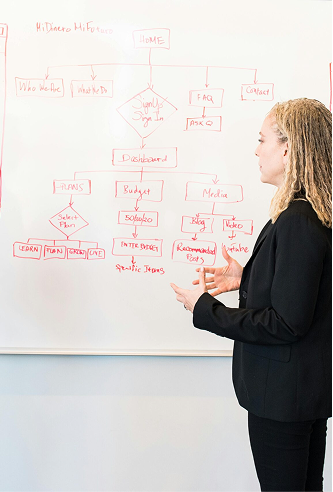Custom Workflow App Development Services | Sidekick Interactive
Streamline your business operations, automate repetitive tasks, and boost productivity with custom workflow apps tailored to your unique processes.




What is custom workflow app development?
Custom workflow app development is the creation of tailor-made software solutions that digitize and automate business processes. Unlike off-the-shelf tools, these apps are designed specifically to meet your company’s workflows, integrate seamlessly with your existing systems (ERP, CRM, databases), and scale as your organization grows.
With Sidekick Interactive, every workflow app we build focuses on:
Efficiency
Automate repetitive tasks and approvals.
Data visibility
Real-time dashboards and reporting.
Collaboration
Streamline communication and task assignments across teams.
Scalability
Easily adapt to future process changes or business growth.
Common challenges in workflow app development
Many businesses face obstacles when relying on manual processes or generic software:
Inefficient processes that waste time and resources.
Data silos preventing teams from collaborating effectively.
Difficulty scaling operations as the company grows.
Lack of integration with existing tools, causing redundant work.
Security and compliance risks when sensitive data is shared manually.
Poor usability leading to low adoption across teams.
Why businesses choose Sidekick Interactive for workflow app development
Sidekick Interactive helps you overcome these challenges with:

Tailored workflow automation
Build apps aligned with your unique processes.

Seamless system integration
Connect with ERP, CRM, databases, and third-party tools.

Scalable backend & API architecture
Ensure your workflow app grows with your business.

Real-time reporting & dashboards
Track progress, KPIs, and bottlenecks instantly.

Secure role-based access
Protect sensitive information and ensure compliance.

Continuous support & updates
Keep your app reliable and up-to-date post-launch.
Our custom workflow app development process
01
Discovery & Process Analysis
Map your existing workflows, identify pain points, and define goals.
02
UX/UI Design for Workflow Efficiency
Design intuitive dashboards, task flows, and approvals.
03
Backend & API Architecture
Build scalable, secure systems that integrate with your existing tools.
04
Frontend & Mobile Interfaces
Develop dashboards, web portals, and mobile views for your teams.
05
Testing & Quality Assurance
Functional, performance, and security testing across all platforms.
06
Deployment & Training
Launch the app and provide onboarding for your team.
07
Ongoing Support & Iteration
Monitor performance, add features, and optimize workflows over time.
What our clients say
Sidekick transformed our complex manual processes into a smooth, automated workflow app. Our approval cycles went from days to hours, saving us countless hours of work.
Funded Fintech Startup
Thanks to Sidekick’s custom workflow app, our sales and project teams now work seamlessly. Real-time dashboards and automated notifications make tracking progress effortless.
Ontario’s largest agricultural distributor
Take up real challenges Today!
Ready to streamline your business operations?
Frequently asked questions
What is a workflow app and how can it help my business?
A workflow app automates your processes, improves collaboration, reduces errors, and increases efficiency by centralizing tasks, approvals, and reporting.
Can Sidekick integrate a workflow app with our existing systems?
Yes, our apps integrate with ERP, CRM, databases, and other tools to create a seamless workflow ecosystem.
How long does it take to build a custom workflow app?
Development timelines depend on complexity, but most workflow apps can be delivered in a few months, including design, development, testing, and deployment.
Do you provide maintenance and updates?
Yes, Sidekick offers ongoing support, monitoring, and iterative improvements post-launch.
What technologies are used to develop workflow apps?
We use modern stacks including React, Angular, Vue (frontend), Node.js, .NET, Python, and cloud-native architectures (AWS, Azure, GCP).
How do you ensure security and compliance?
All apps use role-based access control, encryption, secure APIs, and adhere to industry regulations like GDPR or HIPAA when needed.
